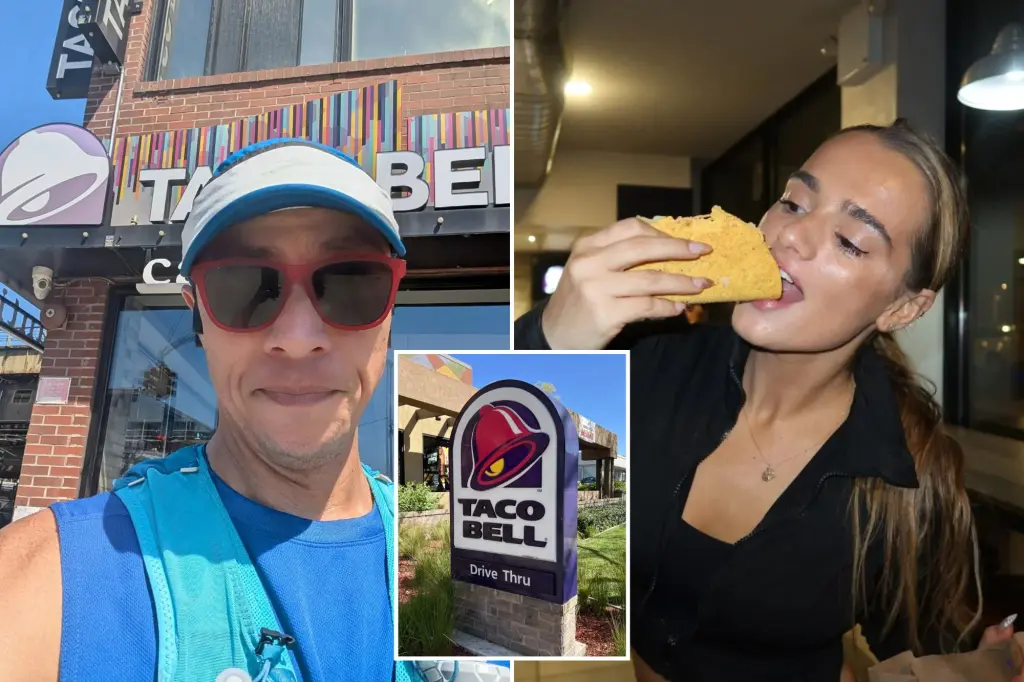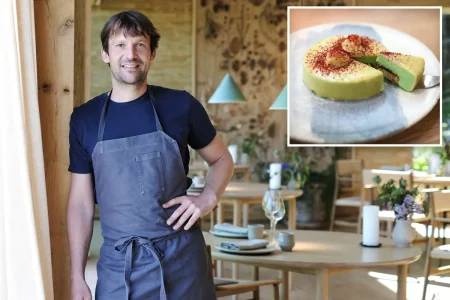America’s Quirkiest Ultra-Marathon: The Taco Bell 50K Challenge
In a world where endurance events constantly push boundaries, the International Taco Bell 50K Ultramarathon stands apart as a delightfully bizarre marriage of extreme athleticism and fast-food consumption. Set to welcome approximately 1,200 participants on October 5th in Denver, this unaffiliated, grassroots event challenges runners to complete a 31-mile urban course while making mandatory stops at nine out of ten Taco Bell restaurants along the way. The rules are simple yet daunting: consume real food items at each stop, specifically a Chalupa Supreme or Crunchwrap Supreme by the fourth restaurant, and a Burrito Supreme or Nachos Bellgrande (a 750-calorie behemoth) by the eighth location—all while covering the distance in under 11 hours. Performance-enhancing digestive aids like Pepto-Bismol are strictly prohibited, and while vomiting isn’t technically against the rules, true champions keep everything down. As the event website proudly proclaims, the point is to do something “completely stupid,” and for the growing community of participants, that’s precisely the appeal.
The race’s origin story reflects its wonderfully absurd nature. In 2016, Dan Zolnikov and a running partner had a fateful bathroom break at a Taco Bell during ultramarathon training, which sparked a half-serious idea about incorporating the fast-food chain into their runs. Though initially dismissed as “a terrible idea” by their running club, the concept persisted as a running joke until 2018, when fellow ultra-runner Jason Romero challenged Zolnikov to stop talking and start doing. Borrowing elements from legendary ultras like the Hard Rock 100 and Barkley Marathons, Zolnikov drafted rules requiring participants to collect wrappers and receipts as proof of completion. That first year saw just seven brave souls at the starting line, with five “survivors” completing the challenge—including Romero, who is blind. From these humble beginnings, the event remained small for several years until social media propelled it into the viral stratosphere. What began as a “what if” thought experiment has transformed into what Zolnikov describes as “this tsunami and force of nature,” attracting participants from 40 states and even elite ultramarathoners like Sage Canaday, who set the course record at 4 hours and 28 minutes last year.
For many participants, the event’s quirky, non-serious nature is a refreshing departure from traditional ultramarathons. Nathan Giusti, a 38-year-old Brooklyn software engineer who lost 75 pounds through running and has completed numerous ultramarathons, was drawn to the “goofiness” of the challenge. “As a former fat kid, I’m great at eating. So I really feel like this is conjoining two of my really great skill sets,” he told The Post. Similarly, 25-year-old Manhattan product manager Vivi Armacost, whose TikTok videos about the event helped fuel its popularity, signed up despite having only completed the New York City Marathon previously. A self-proclaimed “Taco Bell lover and supporter,” Armacost embraced the challenge as both a running adventure and potential material for her budding comedy career, noting, “Everything I do is just because it’s so hilarious.” The event’s irreverent spirit attracts what one participant calls a “special type of idiot”—people who find joy in the absurdity of combining extreme endurance with notoriously gut-challenging cuisine.
Preparation for the Taco Bell 50K requires a unique training approach that contradicts conventional endurance nutrition wisdom. Kim Schwabenbauer, a professional triathlete-turned-sports dietitian, explains that while ultramarathoners typically avoid fat, protein, and fiber during races, Taco Bell 50K participants must adapt their bodies to running with a full stomach loaded with cheese, sour cream, ground beef, and beans. “You have to get used to the feeling of running with a full stomach, and you’re not going to have time to digest in between these stops,” she advises. Participants like Armacost and Giusti take this advice seriously, incorporating Taco Bell meals into their training runs. Armacost spent summer months jogging between Manhattan Taco Bell locations, practicing the eat-and-run technique critical for success. During a 26-mile training run in Brooklyn, Giusti discovered that while Cinnabon Delights made “pretty good race fuel,” the mandatory Chalupa Supreme required him to “slow down a little bit and let my stomach settle”—a strategy Schwabenbauer endorses, noting that lower-intensity running improves digestion.
The physical demands of the Taco Bell 50K exceed even traditional ultramarathons, which already push human endurance to extremes. Race organizers claim their dropout rate surpasses the notoriously difficult Leadville 100 Trail Race, which can see more than half its participants fail to finish. Even without the fast-food element, ultramarathons require exceptional physical conditioning and mental fortitude, with participants facing potential injuries, electrolyte imbalances, and even hallucinations. “Once you get past that marathon distance, it’s not your body that starts shutting down, it’s your brain,” Giusti explains. Adding nine Mexican-inspired meals dramatically increases the challenge. While traditional ultramarathoners rely on simple carbohydrates and electrolyte drinks for quick energy, a Beefy 5-Layer Burrito presents a different digestive equation. As Zolnikov explains, “When you have a lot of food in your stomach, you get more blood into the stomach area to foster digestion, and it takes away from your legs and all these other important things you need when running ultras.” Schwabenbauer is more blunt about the risks, noting that both “vomiting and diarrhea are a real threat.”
For thrill-seekers who find the standard challenge insufficient, the event offers two additional optional tests: the “Diablo Challenge,” requiring participants to cover all orders with Taco Bell’s hottest sauce and take a Diablo “shooter” at the finish line, and the “Baja Blast Challenge,” which demands the consumption of two liters of the tropical soda throughout the race. While these extreme variations might attract some, most participants, like Giusti, focus on the community and unique experience rather than pushing these additional boundaries. “I’m really looking forward to exploring Denver, a city I’ve never been to, in a weird and unusual way,” he said. “And, I’m excited to be surrounded by people who are my same type of insane.” This sentiment captures the essence of the Taco Bell 50K Ultramarathon—a celebration of the human spirit’s capacity for endurance, the stomach’s questionable tolerance for fast food, and the shared joy found in embracing something so wonderfully, deliciously absurd. In the end, there are no winners in the traditional sense—only “survivors” who carry away bizarre bragging rights, a stomach full of Taco Bell, and memories of an adventure that defies conventional wisdom about both athletics and nutrition.














